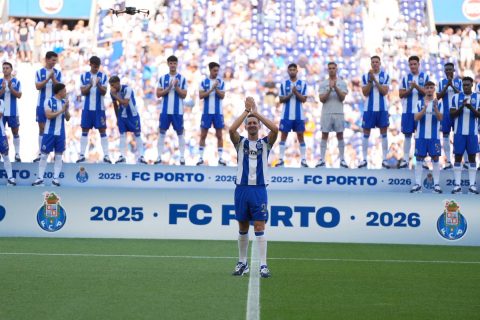In a passionate outburst, Germany’s national team [manager](https://deportescollective.com/category/football/bundesliga/) Hansi Flick questioned the scheduling of an upcoming [match](https://deportescollective.com/category/football/uefa-champions-league/) set by UEFA, sparking controversy among football enthusiasts. “Why can’t we play at 6:00 PM?” Flick demanded to know. “We usually play here at that time, so why not there? Give me one reason.” His frustration stemmed from a decision to alter the typical kick-off timing for an international fixture, a move Flick feels unsettles their preparation.
The Scheduling Controversy
UEFA’s decision to shift the match timing has ruffled feathers in the footballing community. Such changes can have significant implications, especially concerning player performance and team logistics. Flick was left bewildered: “I want to know who is responsible for this. For me, this is shocking.” His emotional plea echoed during a press conference and has since gained traction on social media platforms.
Player and Fan Impact
Altering the kick-off time not only affects the players’ routines but also impacts fans planning to attend or watch the match remotely. Many fans expressed their displeasure online, supporting Flick’s sentiments. For the players, particularly those with meticulous pre-match rituals, any change in routine can lead to a disruption in performance.
UEFA’s Rationale
While the governing body behind European football tournaments, UEFA, has not publicly disclosed the specific reasons for the timing change, it is often speculated such decisions come down to broadcasting rights and viewership considerations across different time zones. Aligning a match with peak viewing slots can sometimes take precedence over team schedules.
Historical Context of Match Scheduling
This is not the first time UEFA has come under scrutiny for match scheduling. Similar controversies have emerged, with teams and [coaches](https://deportescollective.com/category/football/bundesliga/bayern-munich/) voicing their concerns over timings that disrupt player welfare. Match timing decisions often balance several factors, including television broadcasts, advertising revenues, and regional views.
An Expression of Commitment
Flick’s vocal critique of UEFA’s decision underscores his deep commitment to his team’s optimal performance and preparation. In professional football, every minute leading up to a game is crucial, with precise routines aimed at fine-tuning players’ mental and physical readiness.
Moving Forward
As this issue simmers, teams might advocate for a more collaborative approach to future scheduling, possibly incorporating direct inputs from managers and [players](https://deportescollective.com/category/football/bundesliga/bayer-leverkusen/) into the decision-making process. Hansi Flick’s fervent plea may serve as a catalyst for discussions on making sports scheduling more inclusive and considerate of the stakeholders directly affected.









